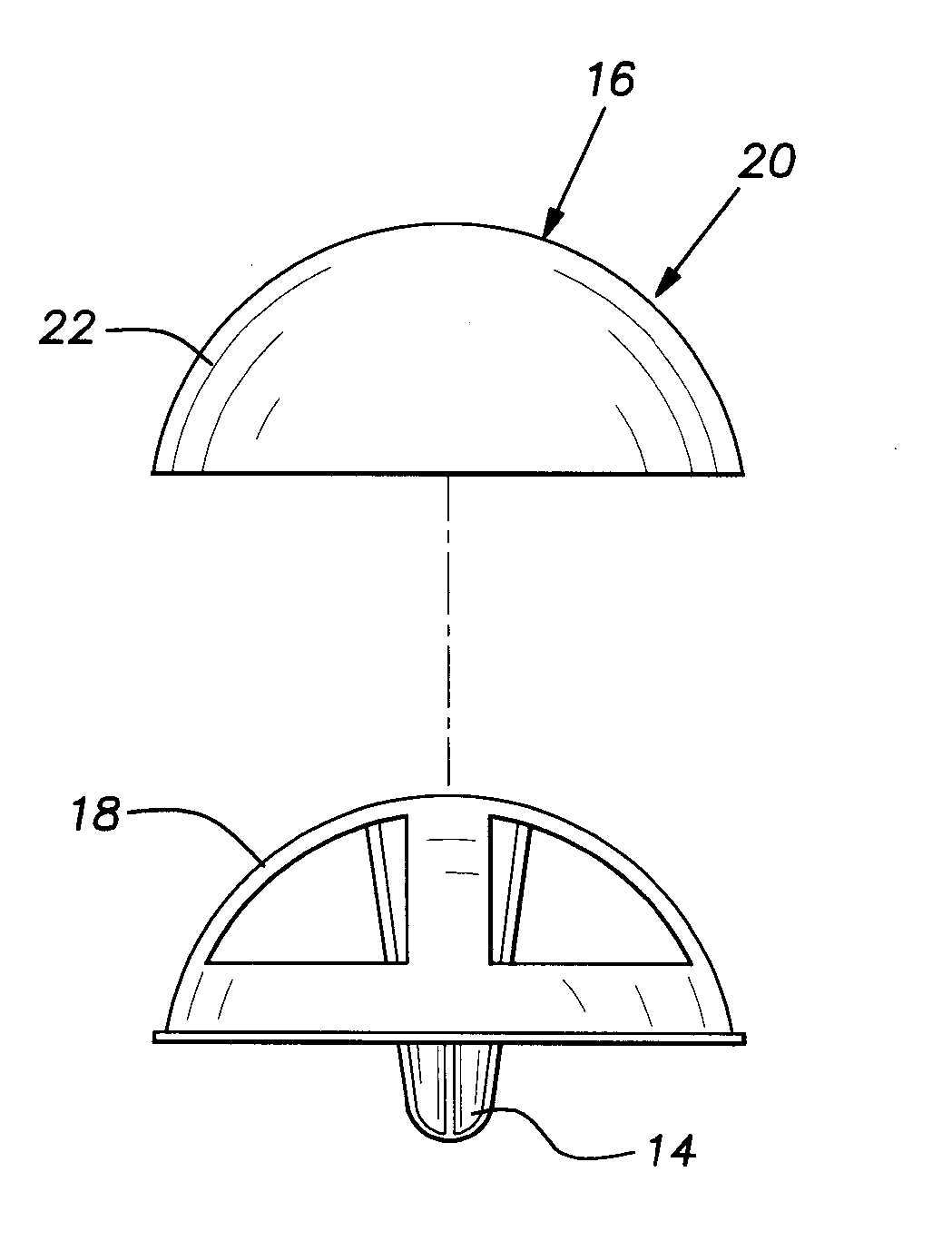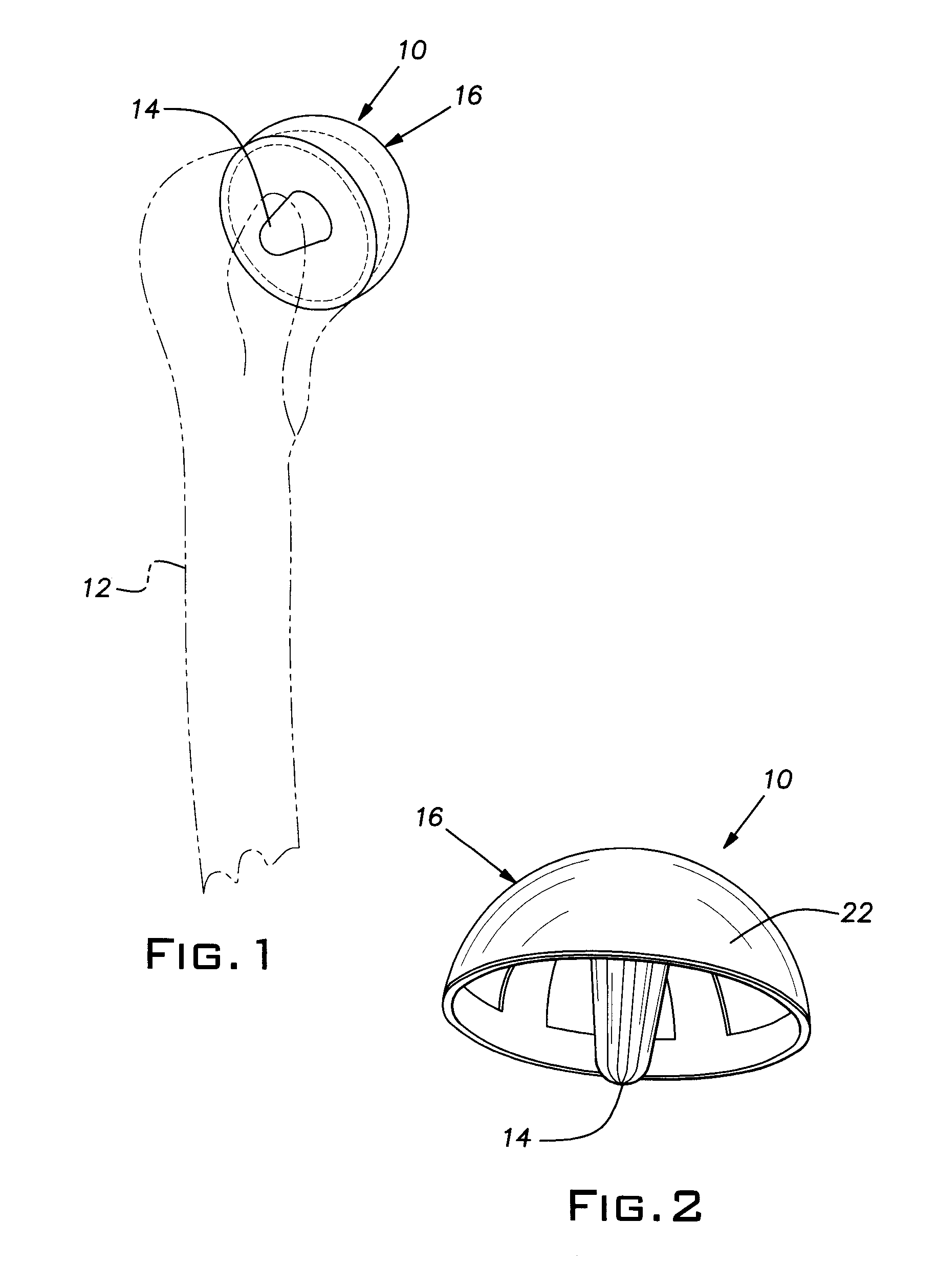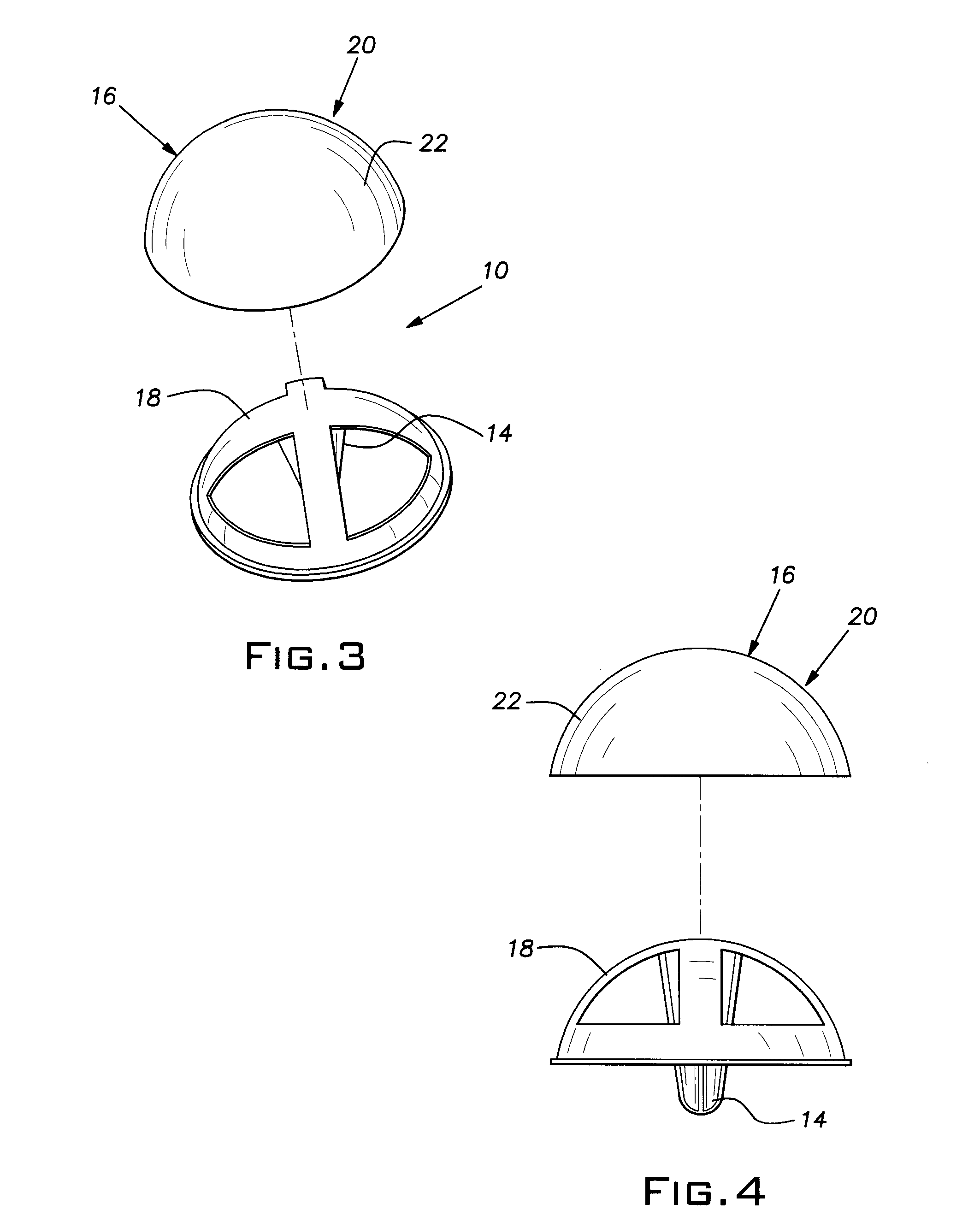Orthopedic Implants Coated with Pyrolytic Carbon
a technology of pyrolytic carbon and orthopedic implants, which is applied in the direction of prosthesis, impression caps, shoulder joints, etc., can solve the problems of blood clots that can pose extreme danger to patients, existing implants are susceptible to wear and tear, and existing implants are also susceptible to blood clots that form on the surface of implants, etc., to achieve the effect of reducing the risk of blood clots, and reducing risk of patients
- Summary
- Abstract
- Description
- Claims
- Application Information
AI Technical Summary
Benefits of technology
Problems solved by technology
Method used
Image
Examples
Embodiment Construction
[0015] Referring to FIG. 1, an implant 10 according to the present invention is shown. The implant 10 is intended to be implanted into the head of a humerus bone 12. Unlike a complete shoulder implant, the implant 10 is a resurfacing implant that is designed to cover or cap only the top portion of the humerus bone 12.
[0016] Although the invention is described herein in the context of a resurfacing shoulder implant 10, it is to be understood that the description of the invention in such an application is for illustrative purposes only. The present invention is applicable to virtually all types of orthopedic implants, including radial head implants, basal thumb implants, spinal implants, etc.
[0017] The implant 10 comprises a dome or head 16 and a stem 14. FIGS. 2 through 4 illustrate, via multiple perspectives, various parts of the implant 10. FIG. 2 is a perspective view of one embodiment of the implant 10, FIG. 3 is an exploded perspective view of the implant 10 shown in FIG. 2, a...
PUM
| Property | Measurement | Unit |
|---|---|---|
| thickness | aaaaa | aaaaa |
| thickness | aaaaa | aaaaa |
| thickness | aaaaa | aaaaa |
Abstract
Description
Claims
Application Information
 Login to View More
Login to View More - R&D
- Intellectual Property
- Life Sciences
- Materials
- Tech Scout
- Unparalleled Data Quality
- Higher Quality Content
- 60% Fewer Hallucinations
Browse by: Latest US Patents, China's latest patents, Technical Efficacy Thesaurus, Application Domain, Technology Topic, Popular Technical Reports.
© 2025 PatSnap. All rights reserved.Legal|Privacy policy|Modern Slavery Act Transparency Statement|Sitemap|About US| Contact US: help@patsnap.com



